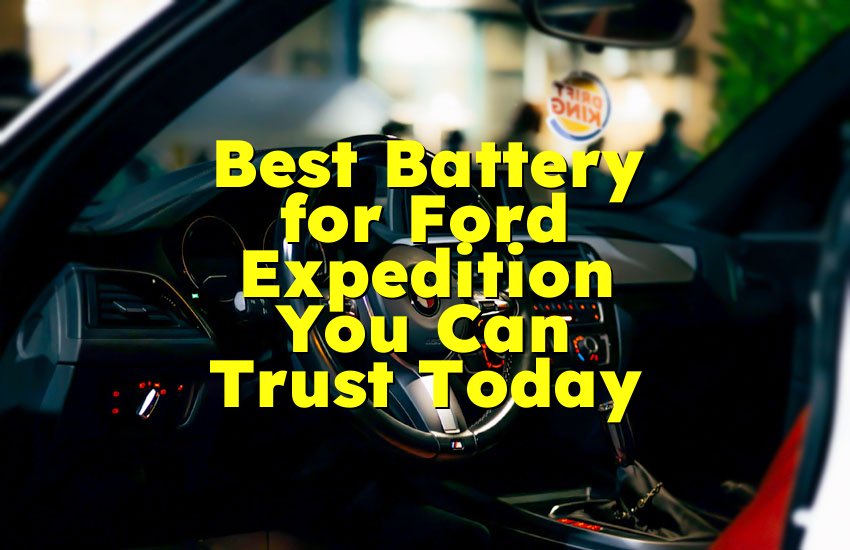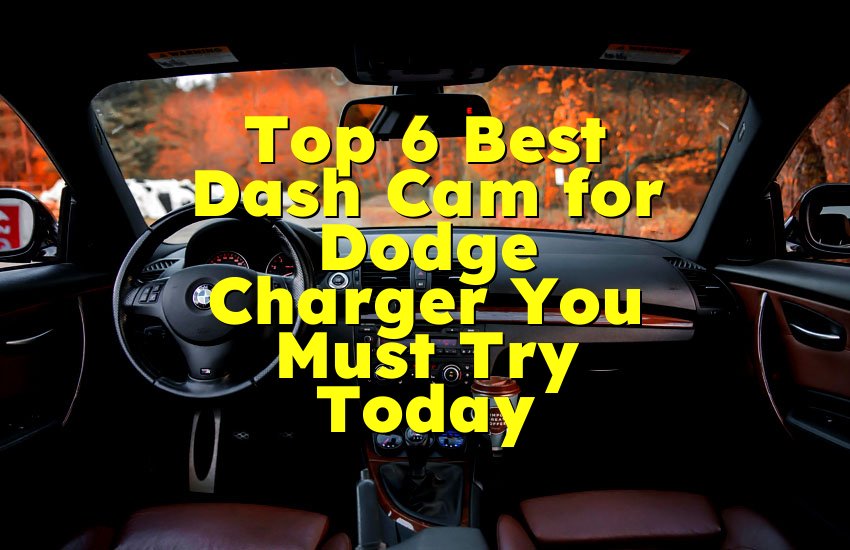As an Amazon Associate, I earn from qualifying purchases at no extra cost to you.
6 Best Dash Cam for Pickup Truck (Buying Guide)
It's always a bit scary when I drive my pickup truck and think about what could happen on the road. I want to feel safe, and I know you do too. That's why I started looking for the best dash cams that can protect us, record every moment, and give peace of mind. In this article, I'll share the 6 best dash cams for pickup trucks you can trust.
| Preview | Product | |
|---|---|---|
 | VIOFO A229 Pro | View On Amazon |
 | Vantrue N5 | View On Amazon |
 | Nextbase 622GW | View On Amazon |
 | 70mai A810 | View On Amazon |
 | Garmin Dash Cam Mini 3 | View On Amazon |
 | PRUVEEO D90-4CH | View On Amazon |
The 6 Best Dash Cam for Pickup Truck
VIOFO A229 Pro – Sharp Eyes in Day and Night
The VIOFO A229 Pro is one of the most trusted dash cams for pickup truck owners. It records in true 4K from the front and 2K from the rear. That means you can see tiny details like license plates even in dim light. Many drivers love that it uses Sony STARVIS sensors. These sensors handle both low light and glare, which are common on busy roads. It also has GPS, Wi-Fi, and parking mode features.
Because pickups ride high and often shake on rough roads, clear video matters. The A229 Pro uses HDR to balance bright and dark spots in your footage. So even when sunlight hits your windshield, the recording stays sharp. Truck drivers often say this makes a big difference during sunrise and sunset. It is also built to last in hot cabins since it uses a supercapacitor instead of a battery.
Of course, no product is perfect. Some people find the installation a little tricky, especially with the rear camera wiring. You'll likely need a hardwire kit for parking mode. Still, once it's set up, it works quietly in the background. That peace of mind makes the effort worth it.
- 4K front + 2K rear
- STARVIS sensors with HDR
- Parking mode with hardwire kit
- Heat-resistant supercapacitor
Vantrue N5 – Full Coverage for Big Pickups
The Vantrue N5 gives full coverage from every angle. It has up to four channels: front, rear, cabin, and even sides. For a pickup truck, this means you can monitor not just the road but also your cargo bed. If you carry tools or gear, that extra coverage protects you from theft claims. It uses Sony STARVIS 2 sensors that shine in low light. Even dark alleys or night highways look clear on playback.
Many truck owners appreciate its buffered parking mode. When motion or impact is detected, the camera records a few seconds before and after the event. This helps capture the full story if someone bumps into your parked truck. Large memory cards up to 512GB are supported, which is useful for multi-channel recording.
Still, more cameras mean more wires and a more complex setup. Some people might find the size a little bulky too. But if you want strong protection and don't mind the effort, the N5 is a powerhouse. Its four-channel system can feel like a security guard watching over your truck 24/7.
- Four channels with STARVIS 2
- Strong night vision
- Buffered parking mode
- Supports 512GB microSD
Nextbase 622GW – Premium Power with Stabilization
The Nextbase 622GW is built for drivers who want the best image stability. Pickup trucks often have strong vibrations, especially on dirt roads. This camera uses digital image stabilization to reduce shaky footage. That means license plates and road signs stay readable even when the truck bounces. It also records in 4K with crystal clarity.
Another great feature is its polarizing filter. Glare from a tall pickup hood can ruin video, but this filter keeps it clear. The 622GW also offers a smart mount system that makes it easy to attach and detach. This helps if you want to remove the camera quickly when parked. GPS, emergency SOS, and Alexa support are added bonuses that many drivers enjoy.
On the downside, this camera costs more than most options. It is mainly front-facing, though you can add optional rear modules. If you want advanced tech and don't mind spending, it's a perfect match. Many truck drivers pick it for peace of mind and premium build quality.
- 4K recording with stabilization
- Polarizing filter option
- Smart mount system
- Alexa and GPS features
70mai A810 – Affordable 4K for Daily Driving
The 70mai A810 is a great choice if you want 4K video without breaking the bank. Its front camera uses Sony sensors for sharp detail, while the rear is good enough for everyday use. It has GPS, Wi-Fi, and HDR for balanced video. Many drivers like its price-to-performance ratio.
Because it's mid-range, you get reliable video for less money than premium models. This makes it popular among truck drivers who want solid quality on a budget. The A810 also offers parking mode when paired with a hardwire kit. That adds security while your pickup is parked.
Some users notice that the rear video isn't as clear as the front. Also, depending on your truck size, you may need an extension cable for the rear camera. Still, it's a very capable option for everyday drivers. For most people, the A810 balances cost, features, and performance well.
- 4K front with Sony sensors
- GPS and HDR video
- Affordable pricing
- Optional parking mode
Garmin Dash Cam Mini 3 – Tiny but Reliable
The Garmin Dash Cam Mini 3 is for drivers who want something simple and small. It looks like a car key and hides neatly behind your rearview mirror. It records 1080p video, which is clear enough for most daily driving. Voice control and automatic incident detection make it easy to use.
Pickup truck owners who dislike bulky gadgets love this camera. It does not block the windshield view, and thieves may not notice it. While it lacks the resolution of 4K cameras, it still captures the road clearly. For drivers who want something that "just works," the Mini 3 is perfect.
Of course, you won't get advanced features like multi-channel coverage or strong night vision. Parking mode is limited unless you buy extra accessories. But if your goal is a reliable front view with minimal fuss, this dash cam is worth it.
- Tiny and discreet design
- 1080p clear video
- Easy voice control
- Automatic incident detection
PRUVEEO D90-4CH – Budget-Friendly Multi-Camera
The PRUVEEO D90-4CH offers full 360° coverage at a low price. It records with four cameras: front, rear, and two sides or cabin. Each channel usually records in 1080p. While not 4K, it gives you wide protection from every angle. For a pickup truck, this means cargo, sides, and rear are all under watch.
Night recording is fair thanks to F1.8 lenses and optional IR support. GPS logging is also included. Many truck drivers choose this camera because it's budget-friendly yet feature-rich. If you don't want to spend much but still want multi-channel safety, this is a solid option.
The main drawback is video clarity. Four channels at 1080p can't match the sharpness of 4K cameras. Customer support and firmware updates are not as strong as premium brands either. But considering the price, the D90-4CH gives good coverage for everyday needs.
- Four-channel 1080p
- IR night support
- GPS logging
- Budget-friendly price
Pickup trucks face tough roads, heavy loads, and sometimes careless drivers. A dash cam is more than a gadget—it's your silent witness. The best one depends on your budget, coverage needs, and style. From the compact Garmin Mini to the powerful Vantrue N5, each option offers peace of mind. Choose the one that fits your truck life best, and you'll always have the road on your side.
| Dash Cam | Resolution | Channels | Best For | Special Feature |
|---|---|---|---|---|
| VIOFO A229 Pro | 4K + 2K | Dual | Day & night clarity | HDR with STARVIS |
| Vantrue N5 | 2.7K + 1080p | Four | Full truck coverage | STARVIS 2 & buffered mode |
| Nextbase 622GW | 4K | Single (+optional rear) | Stable recording | Image stabilization |
| 70mai A810 | 4K + 1080p | Dual | Affordable 4K | HDR & GPS |
| Garmin Mini 3 | 1080p | Single | Discreet use | Voice control |
| PRUVEEO D90-4CH | 1080p x4 | Four | Budget 360° view | GPS + IR night |
Things to Consider Before Buying Dash Cam for Pickup Truck
Camera Resolution and Video Quality
When buying a dash cam for your pickup, the very first thing to look at is resolution. A high-quality video means clear evidence when something happens. Most budget cameras offer 1080p, which is good enough for daily use. However, 2K and 4K cameras give you sharper images, especially for license plates and road signs. That clarity can make the difference when explaining an accident to police or insurance.
A pickup truck rides higher than a normal car. This can affect how your dash cam captures details. Wider angles sometimes make objects look smaller, so having a higher resolution helps. It lets you zoom into footage later without losing important detail. Many drivers who switched from 1080p to 4K noticed a big improvement, especially at night or during rain.
Another thing to think about is frame rate. Some cameras record at 30fps, while others go up to 60fps. A smoother frame rate makes fast-moving vehicles easier to capture. This is useful on highways, where traffic moves quickly. In short, both resolution and frame rate decide how clear your dash cam will record.
- 1080p works for basic needs
- 2K and 4K give better detail
- 60fps captures fast action
- High clarity helps in claims
Field of View and Coverage
Field of view means how wide the camera lens can see. For pickup trucks, this is important because the vehicle is long and tall. A wide-angle lens covers more of the road ahead, reducing blind spots. Many dash cams have between 130° to 170° field of view. The wider the angle, the more you capture in one shot.
But a very wide angle also has downsides. It can stretch objects at the edges, making them look smaller or distorted. That's why balance is key. Around 140° to 150° is often the sweet spot. It captures enough of the road while keeping details clear. For larger pickups with extended cabs or towing trailers, a dual-channel dash cam helps. One camera looks forward while another records the rear.
Some dash cams even have four channels. These record front, back, sides, and sometimes the cabin. Multi-channel setups are great for trucks carrying tools or valuable gear in the bed. The more coverage you have, the safer you feel. Still, keep in mind that more channels mean more wires and storage space.
- Wide angle reduces blind spots
- 140° to 150° gives balance
- Dual channels cover front and rear
- Four channels offer full protection
Parking Mode and Security Features
Pickup trucks are often left in open lots, job sites, or streets. Parking mode in a dash cam protects your truck even when you're not inside. With this feature, the camera records if it senses motion or impact. It works as a silent guard when your truck is unattended. Some models also use buffered recording, saving footage seconds before and after an event.
Parking mode usually needs a hardwire kit. This connects the dash cam directly to your truck's fuse box. That way, it can stay on even when the engine is off. To protect your battery, many kits have voltage cutoffs. These shut off the camera if power gets too low. Another option is an external dash cam battery pack. It powers the camera overnight without touching your truck's main battery.
Besides parking mode, look for extra security features. Some dash cams send alerts to your phone if they detect movement. Others have GPS logging to track location and speed. These tools add layers of safety, making your truck less of a target. With trucks often carrying expensive gear, this peace of mind is priceless.
- Motion and impact detection
- Buffered video for better proof
- Hardwire kit needed for full use
- GPS and alerts add security
Heat Resistance and Durability
Pickup trucks sit in tough conditions. Hot summer days, cold winters, and bumpy work sites can all test your dash cam. That's why durability matters. The inside of a truck can get extremely hot under the sun. Standard battery-based cameras often fail in this heat. Instead, choose models with supercapacitors. They handle heat much better and last longer in extreme temperatures.
Vibration resistance is also important. Pickups often travel on rough or unpaved roads. A dash cam that shakes too much will record blurry footage. Some premium models offer image stabilization to reduce this problem. Even if your truck bounces, your recordings stay clear. That clarity could be the difference in proving your side during an accident.
Build quality is another thing to check. Strong mounts, solid cables, and a good lens cover make the camera more reliable. Cheap mounts sometimes fall off in heat or vibration. If your dash cam drops, it won't capture the moment you need it most. Spending a bit more on durable gear saves frustration later.
- Supercapacitors handle heat
- Stabilization reduces shaky video
- Strong mounts avoid drops
- Durable design lasts longer
Storage and Memory Needs
Dash cams work non-stop, recording everything you see on the road. This means storage is a big factor. Most cameras use microSD cards, but not all cards are equal. For reliable use, high-endurance cards are best. They're built to handle continuous writing without wearing out quickly.
The size of the card matters too. A single 1080p camera may work fine with 64GB or 128GB. But if you use 4K or multi-channel recording, you'll need 256GB or even 512GB. The higher the resolution, the more space each video takes. If you use parking mode, storage fills up even faster.
Loop recording is a common feature that helps. When the card is full, the camera deletes the oldest footage to make room for new videos. Important clips can be locked so they aren't erased. GPS logs and Wi-Fi transfer also add to storage needs. Always check the maximum card size your dash cam supports before buying.
- Use high-endurance microSD cards
- 64GB for basic, 256GB+ for multi-channel
- Loop recording manages space
- Check max supported card size
Ease of Use and Extra Features
A dash cam should make your life easier, not harder. That's why ease of use is an important point to consider. Look for a simple interface with clear menus. A small touchscreen can help adjust settings quickly. If you don't like screens, voice control is a nice alternative. Just say a command, and the camera does the job.
Extra features can also improve the experience. Wi-Fi lets you view and download footage on your phone without removing the memory card. GPS records speed and route, adding context to your videos. Some cameras even have driver-assist features like lane alerts or collision warnings. While not always perfect, they can add safety on long trips.
Mounting style makes a big difference. Suction mounts are easy to move but may fall off in heat. Adhesive mounts stay more secure but are harder to remove. Think about what works best for your truck. At the end of the day, a dash cam that is easy to use is one you'll rely on more often.
- Clear menus or touchscreen
- Voice control for simple commands
- Wi-Fi and GPS add convenience
- Mounting style affects stability
Pickup trucks work hard, and so should the dash cam you choose. Resolution, coverage, parking mode, durability, storage, and ease of use all matter. Think about how you use your truck daily, and pick a camera that fits that lifestyle. With the right choice, you get safety, proof, and peace of mind on every trip. That little device could end up saving you more than money—it could save you stress.
| Feature | Why It Matters | Best Choice |
|---|---|---|
| Resolution | Clear detail for evidence | 2K or 4K |
| Field of View | Covers more road | 140°–150° |
| Parking Mode | Protects when parked | Needs hardwire kit |
| Heat Resistance | Survives hot cabins | Supercapacitor models |
| Storage | Continuous recording | 256GB+ endurance card |
| Ease of Use | Less stress daily | Wi-Fi + simple menus |
Do dash cams record when the pickup is parked?
Dash cams can record while your pickup is parked, but not all models do this out of the box. Most cameras need a hardwire kit that connects to both constant and switched power in your fuse box. This allows the dash cam to sense when the engine is off and switch to parking mode.
Parking mode can record when there is motion or impact near your truck. Some models even use buffered mode. That means they save footage from a few seconds before an event and after it happens.
For pickup trucks, this feature is extra important. Trucks are larger and often carry tools, gear, or cargo in the bed. That makes them a bigger target for theft or vandalism. A dash cam in parking mode can capture someone approaching your vehicle at night. If someone scratches or dents your truck in a parking lot, you'll have proof.
However, parking mode does use battery power. To protect your truck's battery, many hardwire kits include voltage monitoring. This shuts off the dash cam if the battery drops too low. Some drivers add external battery packs for dash cams to run overnight without risk.
Not every budget dash cam has reliable parking mode. Premium models like the VIOFO A229 Pro or Vantrue N5 do this very well. Cheaper ones may only record when impact is detected, missing motion before it happens. If you want full security, look for buffered parking mode and pair it with a proper hardwire kit. That way, your pickup is always protected, even when you're not inside.
Can dash cams handle hot truck interiors in summer?
Truck cabins can get extremely hot in summer. Direct sunlight, closed windows, and large windshields all raise the temperature. This is why many dash cams now use supercapacitors instead of lithium batteries. Supercapacitors handle heat much better and last longer in extreme temperatures. For pickup trucks that spend long hours in the sun, this is important.
Models like the VIOFO A229 Pro and Vantrue N5 use capacitors. They may cost more, but they give more reliability. Cameras with batteries can swell, leak, or stop working if the heat is too strong. Even premium brands sometimes fail if they use older battery-based designs. That's why choosing a heat-tolerant dash cam is smart for truck owners.
Mounting also affects heat. If you mount a camera too low on the windshield, it will sit in direct sunlight. Placing it higher behind the mirror helps reduce exposure. Window tints or sunshades can also help. Still, it's best to avoid leaving your truck parked for days with the dash cam exposed.
Even with heat-resistant designs, storage cards can fail. Use branded high-endurance microSD cards. They are built for long hours of recording in hot conditions. Many drivers replace cards every year to avoid data loss. In short, yes, dash cams can handle heat if you pick the right model and care for it.
Do pickup truck owners really need multi-channel dash cams?
Single-channel dash cams record only the front view. For many car drivers, that is enough. But pickup trucks are different. They are longer, higher, and often carry loads in the bed. Incidents can happen at the rear or sides, not just the front. That's why multi-channel dash cams are useful.
A dual-channel setup records front and rear. This helps when reversing, backing into lots, or if someone hits you from behind. Four-channel systems go further by recording cabin, sides, or even the truck bed area. For example, the Vantrue N5 or PRUVEEO D90-4CH can monitor all around your vehicle. This is valuable if you carry tools, tow trailers, or often park in busy places.
Of course, more cameras mean more installation effort. Running wires along a long pickup cab can take time. Storage also fills up quickly. A four-channel dash cam recording 24/7 will need at least a 512GB microSD card. Power draw is higher too, so a solid hardwire kit is important.
If you mostly drive short city trips, a single front camera may be enough. If you use your truck for work, carry gear, or park overnight in open areas, multi-channel gives more peace of mind. In the end, it depends on your lifestyle. Many truck drivers who switched to multi-channel systems say they feel more secure. That extra coverage often pays off when something unexpected happens.
Can dash cam footage be used for insurance claims?
Yes, dash cam footage is commonly used for insurance claims. In fact, many truck drivers install them mainly for this reason. Insurance companies want clear evidence to decide who was at fault in an accident. A dash cam that records in 1080p or 4K provides that evidence. For a pickup truck, which may cause or receive more damage due to size, proof is even more important.
Footage can show the exact moment of impact, traffic signals, and road conditions. It also helps when the other driver changes their story or denies fault. If your dash cam has GPS, it can record your speed and route. This data makes your case even stronger. Some advanced dash cams even add timestamp overlays, which courts accept as supporting evidence.
However, laws differ by region. Some states or countries have rules about recording audio or using cameras inside the cabin. In most places, using dash cam video for accidents is fully legal. But always check your local rules. Insurance companies usually accept video if it is clear and time-stamped.
Truck drivers also use footage to fight tickets or disputes with customers. For example, if you deliver cargo and someone claims damage, your video can prove what really happened. Overall, dash cam footage is powerful for protecting yourself and speeding up insurance claims. For many pickup truck owners, it saves money and stress when accidents happen.

Frequently Asked Questions (FAQs)
Is it legal to use a dash cam in every pickup truck?
Laws vary by country and state. In most places, dash cams are legal as long as they do not block the driver's view. For pickup trucks with large windshields, it is usually easy to mount one behind the rearview mirror. Some areas restrict recording audio inside the cabin, so check local laws. Always place your dash cam safely and avoid distractions.
Can dash cams lower my insurance rates?
Some insurance companies offer discounts if you have a dash cam. They see it as a way to reduce fraud and clarify claims. However, not all providers give discounts. Even if rates do not drop, having footage often helps avoid costly disputes. Ask your insurer if they have dash cam programs.
Is it worth paying extra for 4K video in a dash cam?
4K video makes a big difference when you need to read license plates or signs. Pickup trucks sit higher, so small details can be harder to catch. With 4K, you get sharper recordings day and night. If your budget allows, a 4K dash cam is worth it. For basic protection, 1080p still works, but clarity is lower.
Do I need a rear camera for my pickup truck?
A rear camera is very useful for pickups. Trucks are longer and have blind spots at the back. A rear cam helps capture accidents when reversing or being hit from behind. If you park in crowded places, it also records anyone tampering with your tailgate or cargo. Dual setups give much better coverage than just a front camera.
Is it hard to install a dash cam in a pickup truck?
Installation depends on the type of dash cam. A single front camera is simple—just stick it on the windshield and plug into the cigarette lighter. Dual or four-channel cameras need more wiring, especially for the rear or cabin. Many truck owners choose professional installation to hide cables neatly. With patience, you can also install it yourself using fuse taps and clips.
Can I use any microSD card in my dash cam?
Not all microSD cards work well for dash cams. These devices record video constantly, so they need high-endurance cards. Look for cards labeled A2, V30, or "high endurance." Cheap cards can fail after a few months, losing footage. For multi-channel cameras, use larger cards like 256GB or 512GB.
Is it safe to leave my dash cam on all night?
It is safe if your dash cam has the right hardwire kit. Kits with voltage monitoring protect your truck's battery. Some people add external dash cam batteries for longer parking mode recording. Without these, your main battery may drain overnight. Always choose a setup designed for long-term use.
Do I need Wi-Fi and GPS in a dash cam?
Wi-Fi makes it easy to transfer videos to your phone. GPS records your speed and route, which is useful for insurance or legal proof. While not required, both features make your dash cam more powerful. For serious protection, they are worth having.











